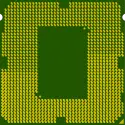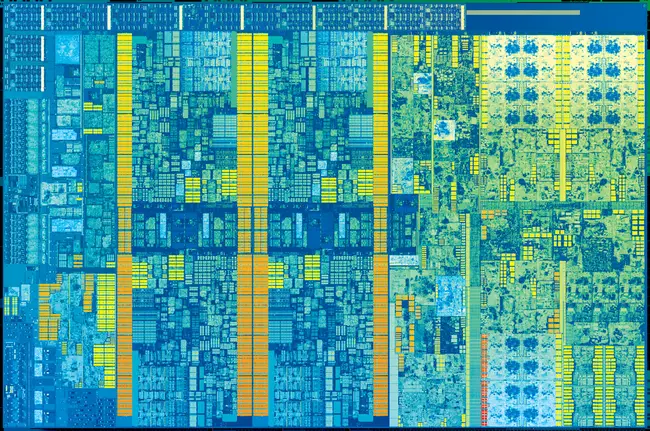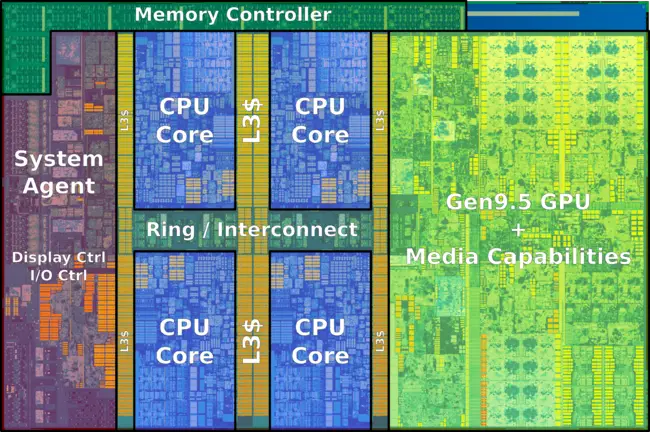From WikiChip
Difference between revisions of "intel/core i5/i5-7500"
m (Bot: correction in eDP standard) |
|||
| (16 intermediate revisions by 6 users not shown) | |||
| Line 1: | Line 1: | ||
{{intel title|Core i5-7500}} | {{intel title|Core i5-7500}} | ||
| − | {{ | + | {{chip |
| − | | name | + | |name=Core i5-7500 |
| − | | no image | + | |no image=Yes |
| − | + | |designer=Intel | |
| − | + | |manufacturer=Intel | |
| − | + | |model number=i5-7500 | |
| − | | designer | + | |part number=CM8067702868012 |
| − | | manufacturer | + | |part number 2=BXC80677I57500 |
| − | | model number | + | |part number 3=BX80677I57500 |
| − | | part number | + | |s-spec=SR335 |
| − | | part number | + | |market=Desktop |
| − | | part number | + | |market 2=Embedded |
| − | | s-spec | + | |first announced=January 3, 2017 |
| − | | market | + | |first launched=January 3, 2017 |
| − | | market 2 | + | |release price=$202.00 |
| − | | first announced | + | |family=Core i5 |
| − | | first launched | + | |series=i5-7500 |
| − | + | |locked=Yes | |
| − | + | |frequency=3,400 MHz | |
| − | | release price | + | |turbo frequency1=3,800 MHz |
| − | + | |turbo frequency2=3,700 MHz | |
| − | | family | + | |turbo frequency3=3,700 MHz |
| − | | series | + | |turbo frequency4=3,600 MHz |
| − | | locked | + | |bus type=DMI 3.0 |
| − | | frequency | + | |bus rate=8 GT/s |
| − | + | |clock multiplier=34 | |
| − | | turbo frequency1 | + | |isa=x86-64 |
| − | | turbo frequency2 | + | |isa family=x86 |
| − | | turbo frequency3 | + | |microarch=Kaby Lake |
| − | | turbo frequency4 | + | |platform=Kaby Lake |
| − | | bus type | + | |chipset=Sunrise Point |
| − | + | |chipset 2=Union Point | |
| − | | bus rate | + | |core name=Kaby Lake S |
| − | + | |core family=6 | |
| − | | clock multiplier | + | |core model=158 |
| − | + | |core stepping=B0 | |
| − | + | |process=14 nm | |
| − | | isa | + | |technology=CMOS |
| − | | isa | + | |word size=64 bit |
| − | | microarch | + | |core count=4 |
| − | | platform | + | |thread count=4 |
| − | | chipset | + | |max cpus=1 |
| − | | chipset 2 | + | |max memory=64 GiB |
| − | | core name | + | |v core min=0.55 V |
| − | | core family | + | |v core max=1.52 V |
| − | | core model | + | |tdp=65 W |
| − | | core stepping | + | |tjunc min=0 °C |
| − | + | |tjunc max=100 °C | |
| − | | process | + | |tstorage min=-25 °C |
| − | + | |tstorage max=125 °C | |
| − | | technology | + | |package module 1={{packages/intel/lga-1151}} |
| − | + | |turbo frequency=Yes | |
| − | |||
| − | |||
| − | | word size | ||
| − | | core count | ||
| − | | thread count | ||
| − | | max cpus | ||
| − | | max memory | ||
| − | |||
| − | |||
| − | | v core min | ||
| − | | v core max | ||
| − | |||
| − | | tdp | ||
| − | |||
| − | |||
| − | |||
| − | |||
| − | |||
| − | | tjunc min | ||
| − | | tjunc max | ||
| − | |||
| − | |||
| − | | tstorage min | ||
| − | | tstorage max | ||
| − | |||
| − | |||
| − | |||
| − | | package module 1 | ||
}} | }} | ||
'''Core i5-7500''' is a {{arch|64}} [[quad-core]] mid-range performance [[x86]] microprocessor introduced by [[Intel]] in early [[2017]] for the desktop and embedded markets. This chip, which is based on the {{intel|Kaby Lake|l=arch}} microarchitecture, is fabricated on Intel's [[14 nm process|14nm+ process]]. The i5-7500 operates at 3.4 GHz with a TDP of 65 W supporting a {{intel|Turbo Boost}} frequency of 3.8 GHz. The processor supports up to 64 GiB of dual-channel non-ECC DDR4-2400 memory and incorporates Intel's {{intel|HD Graphics 630}} [[IGP]] operating at 350 MHz with a burst frequency of 1.1 GHz. | '''Core i5-7500''' is a {{arch|64}} [[quad-core]] mid-range performance [[x86]] microprocessor introduced by [[Intel]] in early [[2017]] for the desktop and embedded markets. This chip, which is based on the {{intel|Kaby Lake|l=arch}} microarchitecture, is fabricated on Intel's [[14 nm process|14nm+ process]]. The i5-7500 operates at 3.4 GHz with a TDP of 65 W supporting a {{intel|Turbo Boost}} frequency of 3.8 GHz. The processor supports up to 64 GiB of dual-channel non-ECC DDR4-2400 memory and incorporates Intel's {{intel|HD Graphics 630}} [[IGP]] operating at 350 MHz with a burst frequency of 1.1 GHz. | ||
| Line 90: | Line 62: | ||
|l1i break=4x32 KiB | |l1i break=4x32 KiB | ||
|l1i desc=8-way set associative | |l1i desc=8-way set associative | ||
| − | |||
|l1d cache=128 KiB | |l1d cache=128 KiB | ||
|l1d break=4x32 KiB | |l1d break=4x32 KiB | ||
| Line 171: | Line 142: | ||
| intel clear video hd = Yes | | intel clear video hd = Yes | ||
}} | }} | ||
| + | {{kaby lake hardware accelerated video table|col=1}} | ||
== Features == | == Features == | ||
| Line 195: | Line 167: | ||
|avx=Yes | |avx=Yes | ||
|avx2=Yes | |avx2=Yes | ||
| − | + | ||
|abm=Yes | |abm=Yes | ||
|tbm=No | |tbm=No | ||
| Line 239: | Line 211: | ||
|rvi=No | |rvi=No | ||
}} | }} | ||
| + | |||
| + | == Die Shot == | ||
| + | {{see also|intel/microarchitectures/kaby_lake#Die|l1=Kaby Lake § Die Shot}} | ||
| + | A die shot of Intel's Kaby Lake [[Quad Core]] desktop processors: | ||
| + | |||
| + | : [[File:kaby lake (quad core).png|650px]] | ||
| + | |||
| + | |||
| + | : [[File:kaby lake (quad core) (annotated).png|650px]] | ||
Latest revision as of 20:59, 13 September 2018
| Edit Values | ||||||||||||
| Core i5-7500 | ||||||||||||
| General Info | ||||||||||||
| Designer | Intel | |||||||||||
| Manufacturer | Intel | |||||||||||
| Model Number | i5-7500 | |||||||||||
| Part Number | CM8067702868012, BXC80677I57500, BX80677I57500 | |||||||||||
| S-Spec | SR335 | |||||||||||
| Market | Desktop, Embedded | |||||||||||
| Introduction | January 3, 2017 (announced) January 3, 2017 (launched) | |||||||||||
| Release Price | $202.00 | |||||||||||
| Shop | Amazon | |||||||||||
| General Specs | ||||||||||||
| Family | Core i5 | |||||||||||
| Series | i5-7500 | |||||||||||
| Locked | Yes | |||||||||||
| Frequency | 3,400 MHz | |||||||||||
| Turbo Frequency | Yes | |||||||||||
| Turbo Frequency | 3,800 MHz (1 core), 3,700 MHz (2 cores), 3,700 MHz (3 cores), 3,600 MHz (4 cores) | |||||||||||
| Bus type | DMI 3.0 | |||||||||||
| Bus rate | 8 GT/s | |||||||||||
| Clock multiplier | 34 | |||||||||||
| Microarchitecture | ||||||||||||
| ISA | x86-64 (x86) | |||||||||||
| Microarchitecture | Kaby Lake | |||||||||||
| Platform | Kaby Lake | |||||||||||
| Chipset | Sunrise Point, Union Point | |||||||||||
| Core Name | Kaby Lake S | |||||||||||
| Core Family | 6 | |||||||||||
| Core Model | 158 | |||||||||||
| Core Stepping | B0 | |||||||||||
| Process | 14 nm | |||||||||||
| Technology | CMOS | |||||||||||
| Word Size | 64 bit | |||||||||||
| Cores | 4 | |||||||||||
| Threads | 4 | |||||||||||
| Max Memory | 64 GiB | |||||||||||
| Multiprocessing | ||||||||||||
| Max SMP | 1-Way (Uniprocessor) | |||||||||||
| Electrical | ||||||||||||
| Vcore | 0.55 V-1.52 V | |||||||||||
| TDP | 65 W | |||||||||||
| Tjunction | 0 °C – 100 °C | |||||||||||
| Tstorage | -25 °C – 125 °C | |||||||||||
| Packaging | ||||||||||||
| ||||||||||||
Core i5-7500 is a 64-bit quad-core mid-range performance x86 microprocessor introduced by Intel in early 2017 for the desktop and embedded markets. This chip, which is based on the Kaby Lake microarchitecture, is fabricated on Intel's 14nm+ process. The i5-7500 operates at 3.4 GHz with a TDP of 65 W supporting a Turbo Boost frequency of 3.8 GHz. The processor supports up to 64 GiB of dual-channel non-ECC DDR4-2400 memory and incorporates Intel's HD Graphics 630 IGP operating at 350 MHz with a burst frequency of 1.1 GHz.
Cache[edit]
- Main article: Kaby Lake § Cache
|
Cache Organization
Cache is a hardware component containing a relatively small and extremely fast memory designed to speed up the performance of a CPU by preparing ahead of time the data it needs to read from a relatively slower medium such as main memory. The organization and amount of cache can have a large impact on the performance, power consumption, die size, and consequently cost of the IC. Cache is specified by its size, number of sets, associativity, block size, sub-block size, and fetch and write-back policies. Note: All units are in kibibytes and mebibytes. |
|||||||||||||||||||||||||||||||||||||
|
|||||||||||||||||||||||||||||||||||||
Memory controller[edit]
|
Integrated Memory Controller
|
||||||||||||||
|
||||||||||||||
Expansions[edit]
|
Expansion Options
|
||||||||
|
||||||||
Graphics[edit]
|
Integrated Graphics Information
|
||||||||||||||||||||||||||||||||||||||||||||||||||||||||||||||||||||
|
||||||||||||||||||||||||||||||||||||||||||||||||||||||||||||||||||||
| [Edit] Kaby Lake (Gen9.5) Hardware Accelerated Video Capabilities | |||||||
|---|---|---|---|---|---|---|---|
| Codec | Encode | Decode | |||||
| Profiles | Levels | Max Resolution | Profiles | Levels | Max Resolution | ||
| MPEG-2 (H.262) | Main | High | 1080p (FHD) | Main | Main, High | 1080p (FHD) | |
| MPEG-4 AVC (H.264) | High, Main | 5.1 | 2160p (4K) | Main, High, MVC, Stereo | 5.1 | 2160p (4K) | |
| JPEG/MJPEG | Baseline | - | 16k x 16k | Baseline | Unified | 16k x 16k | |
| HEVC (H.265) | Main, Main 10 | 5.1 | 2160p (4K) | Main, Main 10 | 5.1 | 2160p (4K) | |
| VC-1 | ✘ | Advanced, Main, Simple | 3, High, Simple | 3840x3840 | |||
| VP8 | Unified | Unified | N/A | 0 | Unified | 1080p | |
| VP9 | 0 | 2160p (4K) | 0, 2 | Unified | 2160p (4K) | ||
Features[edit]
[Edit/Modify Supported Features]
Die Shot[edit]
- See also: Kaby Lake § Die Shot
A die shot of Intel's Kaby Lake Quad Core desktop processors:
Facts about "Core i5-7500 - Intel"
| Has subobject "Has subobject" is a predefined property representing a container construct and is provided by Semantic MediaWiki. | Core i5-7500 - Intel#package + and Core i5-7500 - Intel#io + |
| base frequency | 3,400 MHz (3.4 GHz, 3,400,000 kHz) + |
| bus rate | 8,000 MT/s (8 GT/s, 8,000,000 kT/s) + |
| bus type | DMI 3.0 + |
| chipset | Sunrise Point + and Union Point + |
| clock multiplier | 34 + |
| core count | 4 + |
| core family | 6 + |
| core model | 158 + |
| core name | Kaby Lake S + |
| core stepping | B0 + |
| core voltage (max) | 1.52 V (15.2 dV, 152 cV, 1,520 mV) + |
| core voltage (min) | 0.55 V (5.5 dV, 55 cV, 550 mV) + |
| designer | Intel + |
| device id | 0x5912 + |
| family | Core i5 + |
| first announced | January 3, 2017 + |
| first launched | January 3, 2017 + |
| full page name | intel/core i5/i5-7500 + |
| has advanced vector extensions | true + |
| has advanced vector extensions 2 | true + |
| has ecc memory support | false + |
| has feature | Advanced Vector Extensions +, Advanced Vector Extensions 2 +, Advanced Encryption Standard Instruction Set Extension +, Turbo Boost Technology 2.0 +, Enhanced SpeedStep Technology +, Trusted Execution Technology +, Intel vPro Technology +, Intel VT-x +, Intel VT-d +, Transactional Synchronization Extensions +, Memory Protection Extensions +, Software Guard Extensions +, Secure Key Technology +, OS Guard +, Stable Image Platform Program + and Identity Protection Technology + |
| has intel enhanced speedstep technology | true + |
| has intel identity protection technology support | true + |
| has intel secure key technology | true + |
| has intel stable image platform program support | true + |
| has intel supervisor mode execution protection | true + |
| has intel trusted execution technology | true + |
| has intel turbo boost technology 2 0 | true + |
| has intel vpro technology | true + |
| has intel vt-d technology | true + |
| has intel vt-x technology | true + |
| has locked clock multiplier | true + |
| has transactional synchronization extensions | true + |
| has x86 advanced encryption standard instruction set extension | true + |
| instance of | microprocessor + |
| integrated gpu | HD Graphics 630 + |
| integrated gpu base frequency | 350 MHz (0.35 GHz, 350,000 KHz) + |
| integrated gpu designer | Intel + |
| integrated gpu execution units | 24 + |
| integrated gpu max frequency | 1,100 MHz (1.1 GHz, 1,100,000 KHz) + |
| integrated gpu max memory | 65,536 MiB (67,108,864 KiB, 68,719,476,736 B, 64 GiB) + |
| isa | x86-64 + |
| isa family | x86 + |
| l1$ size | 256 KiB (262,144 B, 0.25 MiB) + |
| l1d$ description | 8-way set associative + |
| l1d$ size | 128 KiB (131,072 B, 0.125 MiB) + |
| l1i$ description | 8-way set associative + |
| l1i$ size | 128 KiB (131,072 B, 0.125 MiB) + |
| l2$ description | 4-way set associative + |
| l2$ size | 1 MiB (1,024 KiB, 1,048,576 B, 9.765625e-4 GiB) + |
| l3$ description | 12-way set associative + |
| l3$ size | 6 MiB (6,144 KiB, 6,291,456 B, 0.00586 GiB) + |
| ldate | January 3, 2017 + |
| manufacturer | Intel + |
| market segment | Desktop + and Embedded + |
| max cpu count | 1 + |
| max junction temperature | 373.15 K (100 °C, 212 °F, 671.67 °R) + |
| max memory | 65,536 MiB (67,108,864 KiB, 68,719,476,736 B, 64 GiB, 0.0625 TiB) + |
| max memory bandwidth | 35.76 GiB/s (36,618.24 MiB/s, 38.397 GB/s, 38,397.008 MB/s, 0.0349 TiB/s, 0.0384 TB/s) + |
| max memory channels | 2 + |
| max pcie lanes | 16 + |
| max storage temperature | 398.15 K (125 °C, 257 °F, 716.67 °R) + |
| microarchitecture | Kaby Lake + |
| min junction temperature | 273.15 K (0 °C, 32 °F, 491.67 °R) + |
| min storage temperature | 248.15 K (-25 °C, -13 °F, 446.67 °R) + |
| model number | i5-7500 + |
| name | Core i5-7500 + |
| package | FCLGA-1151 + |
| part number | CM8067702868012 +, BXC80677I57500 + and BX80677I57500 + |
| platform | Kaby Lake + |
| process | 14 nm (0.014 μm, 1.4e-5 mm) + |
| release price | $ 202.00 (€ 181.80, £ 163.62, ¥ 20,872.66) + |
| s-spec | SR335 + |
| series | i5-7500 + |
| smp max ways | 1 + |
| socket | LGA-1151 + |
| supported memory type | DDR3L-1600 + and DDR4-2400 + |
| tdp | 65 W (65,000 mW, 0.0872 hp, 0.065 kW) + |
| technology | CMOS + |
| thread count | 4 + |
| turbo frequency (1 core) | 3,800 MHz (3.8 GHz, 3,800,000 kHz) + |
| turbo frequency (2 cores) | 3,700 MHz (3.7 GHz, 3,700,000 kHz) + |
| turbo frequency (3 cores) | 3,700 MHz (3.7 GHz, 3,700,000 kHz) + |
| turbo frequency (4 cores) | 3,600 MHz (3.6 GHz, 3,600,000 kHz) + |
| word size | 64 bit (8 octets, 16 nibbles) + |
| x86/has memory protection extensions | true + |
| x86/has software guard extensions | true + |


